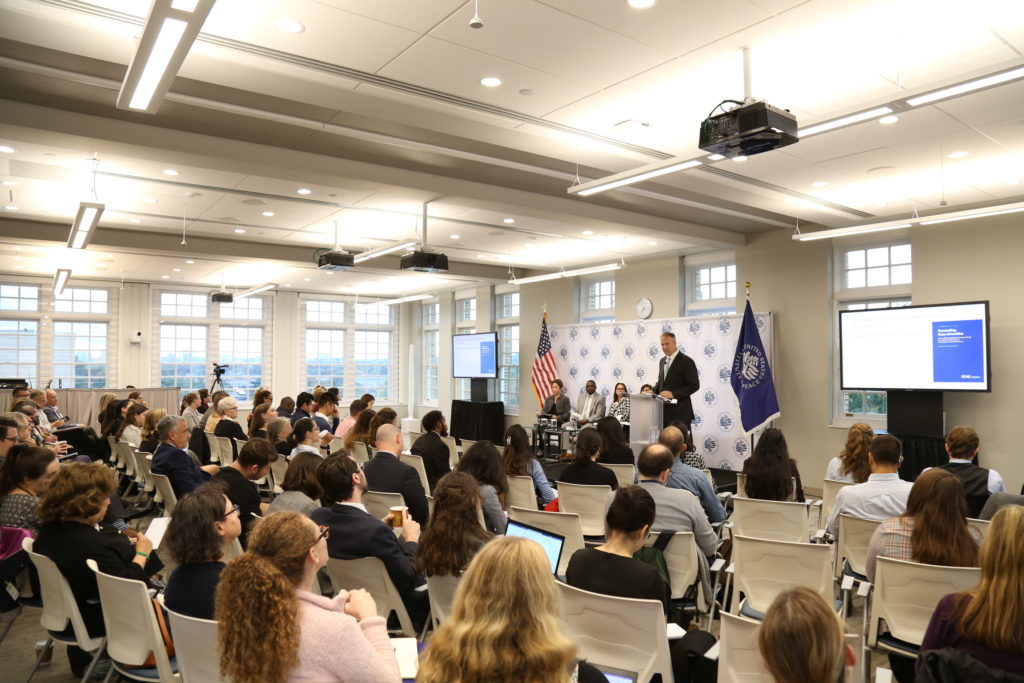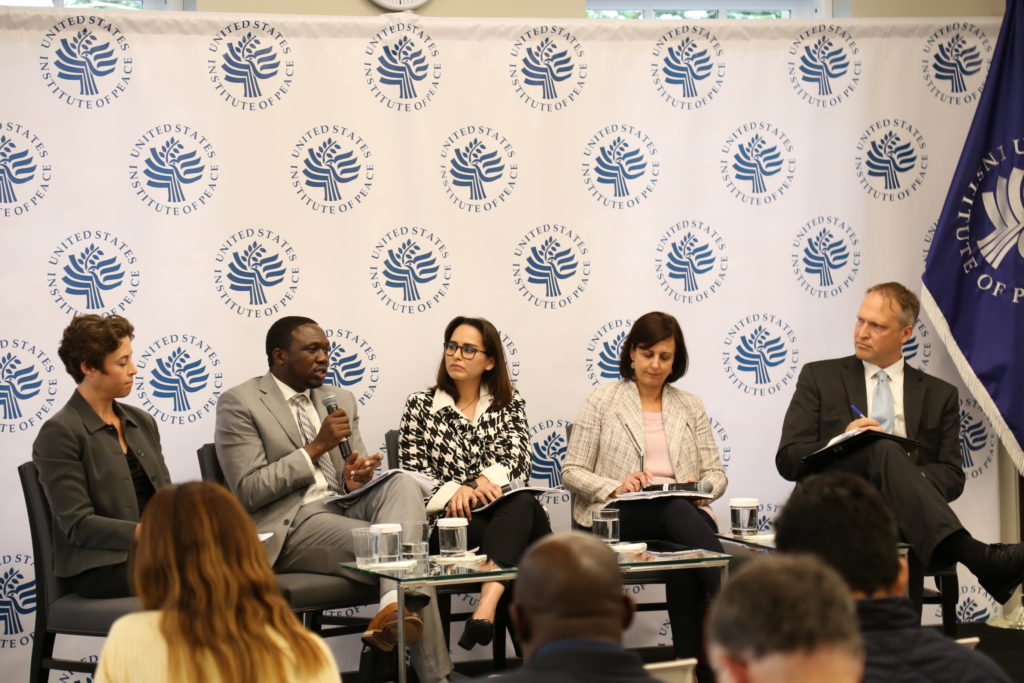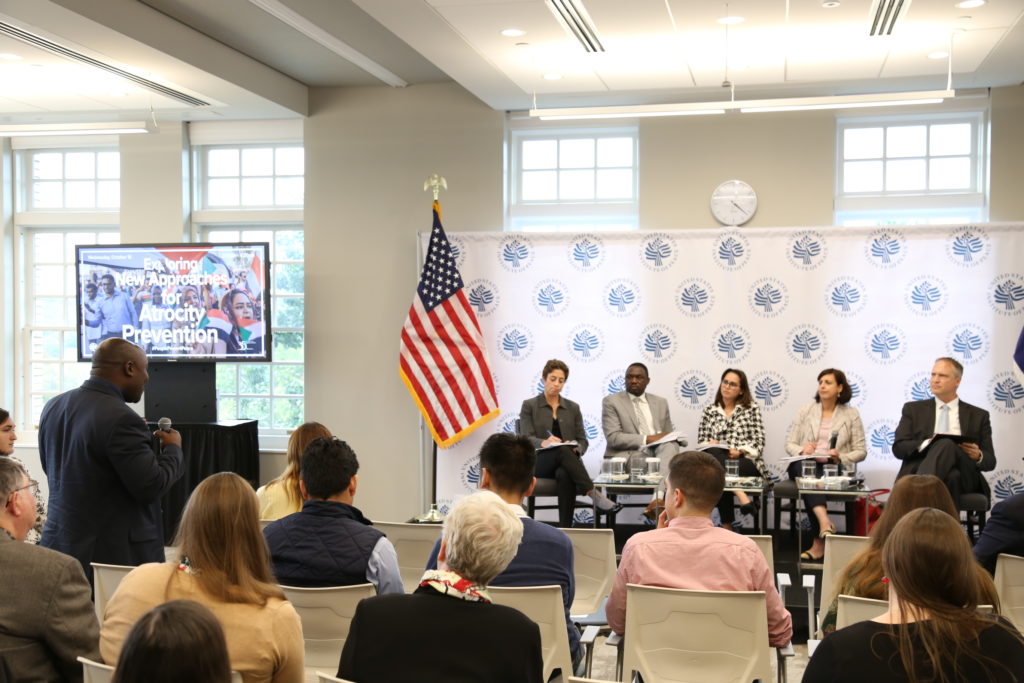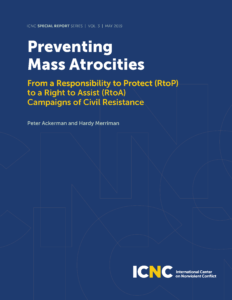Policy Makers, Scholars, Activists Embrace ICNC’s “Right to Assist” Proposal
ICNC’s proposed Right to Assist doctrine is “a framework that would guide collaboration and international support to civil resistance movements… around the world,” ICNC President Hardy Merriman told an Washington audience on October 16.
The doctrine is the brainchild of Merriman and ICNC Founder Peter Ackerman, who maintain that strategic external support can avert atrocities and civil war. Ackerman and Merriman expound on the theory in their ICNC Special Report, Preventing Atrocities: From A Responsibility to Protect (RtoP) to a Right to Assist (RtoA) Campaigns of Civil Resistance (Available in English and Arabic).

Merriman introduced the Right to Assist at a co-sponsored event with the United States Institute of Peace (USIP). In opening remarks, USIP President Nancy Lindborg stated that “This report provides practical guidance for how the international community can best support movements without undermining their legitimacy, their safety or their agency.”

Speaking to about 100 scholars, activists, policy makers and philanthropists, Merriman explained five ways that external actors can support nonviolent movements: Public education; capacity building; support such as legal aid and strike funds; increasing the “cost of repression” by exacting such consequences as “naming and shaming” perpetrators; and fostering political transitions through watchdog and monitoring activities.
“This is a strong principle,” said Ariela Blätter, of the Washington-based Wellspring Philanthropic Fund. “I see it as a responsibility and an absolute right.”
 Blätter was one of three panelists who discussed the R2A proposal. Other panelists were Quscondy Abdulshafi, a consultant and former student activist against mass atrocities in Sudan; and Alejandra Espinoza, executive director of Voices of Nicaragua. The discussion was moderated by Maria Stephan, director of the Program on Nonviolent Action at the U.S. Institute of Peace.
Blätter was one of three panelists who discussed the R2A proposal. Other panelists were Quscondy Abdulshafi, a consultant and former student activist against mass atrocities in Sudan; and Alejandra Espinoza, executive director of Voices of Nicaragua. The discussion was moderated by Maria Stephan, director of the Program on Nonviolent Action at the U.S. Institute of Peace.
